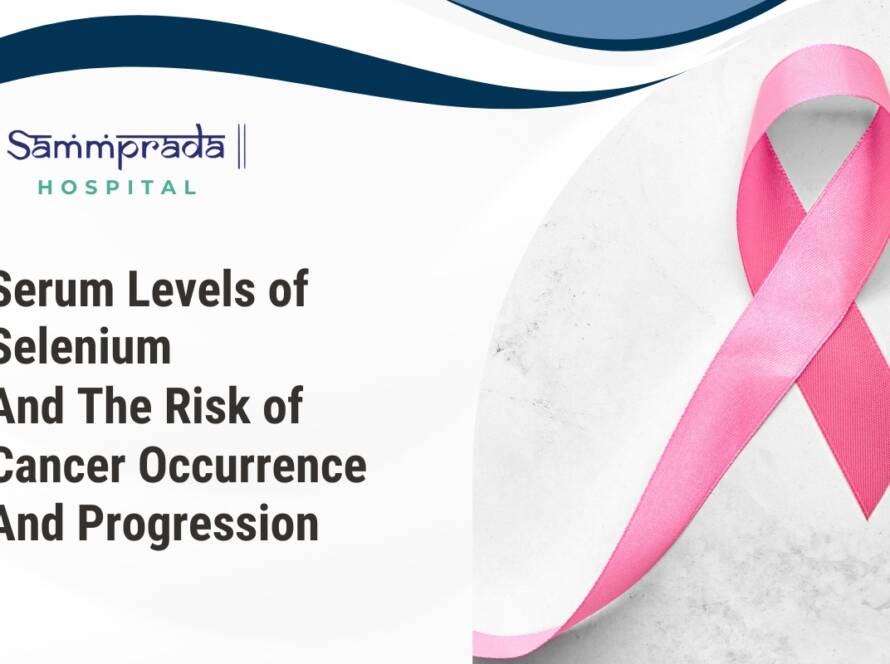Introduction
A significant proportion of breast cancer in India are diagnosed at an advanced stage (~50% of breast cancers). Usually the patient herself tends to self-examine the presence of lump, thickening or other progressive change. Subsequently, the healthcare system should provide services which enable accurate diagnosis (benign versus malignant).
A change in size, colour or feeling of a lump in your breast can be a sign of cancer. Do not ignore. Schedule an appointment now with the best Gynaec-oncologist in Bangalore, at Sammprada cancer hospital, for necessary guidance. Sammprada promotes preventive cancer screening tests similar to the regular health check-up. The risks involved with such screening programs include the possibility of a false positive or false negative diagnosis. For cancer screening, the benefits tend to outweigh the risks.
A screening test can mitigate your risk of discovering it at an advanced stage. Early detection can help treat breast cancer effectively. The effective diagnosis and treatment of breast cancer includes a clinical breast examination including the medical history. This is followed by diagnostic imaging (mammography and ultrasound) and tissue sampling with pathologic evaluation, together termed as ‘triple test’ of breast diagnosis.
Even before a lump in the breast is felt clinically, mammograms can detect the same. However, not all lumps are cancerous and some of them could be fatty cells, calcifications or cysts. Additional tests such as ultrasound or MRI will confirm whether the lump/mass is solid in texture. Confirmation of cancer is done following a biopsy, in which cells are retrieved from the suspicious area and examined pathologically.
Mammography uses x-rays for producing detailed images of the breast structure, and enables locating and characterizing the breast lesions. The whole breast is examined in a single mammogram. The International agency for research on cancer states that the Mammogram is appropriate for early diagnosis of clinically occult breast cancer in asymptomatic women aged ≥45 years. Ultrasound is used as an adjunct to mammography. It is the imaging modality of choice among women aged <35 years.
The American cancer society has issued guidelines for annual mammogram screening starting at age 40 years. However for high risk group (family history of breast cancer), the National Cancer Institute, USA, advises annual screening mammogram starting at age 25 years or 10 years prior to youngest age at diagnosis in the family.
Self-examination is recommended every month after the age of 20 years, which enables familiarity with the contours of the breasts and entitle alertness to any changes. Clinical breast examination can be done during the interval period between screening mammogramphy tests.
How can early detection prevent breast cancer?
Detection of breast cancer at an early stage, like any other type of cancer, will enable a variety of treatment options given the less aggressive form or entitle superior outcomes . One of the best ways to catch breast cancer early is by having mammograms done, every year after age 40.
Mammography and breast cancer
For every 10,000 women aged 50-69 years screened over a 10-year period, mammograms would be expected to prevent between 10 – 20 deaths from breast cancer. Sammprada encourages screening and early detection of breast cancer, and subsequent effective and holistic treatment.
The benefits of screening mammogram vary depending on the age of the woman. When tissue is dense, it is hard to detect any changes in the breasts, Hence, women at younger age are discouraged. Moreover, the occurrence of breast cancer increases with age, and older women are more likely than younger women to develop breast cancer. Thus more number of cancer patients are detected with mammography among the older age group women.
Conclusion
Though there are no proven methods to prevent breast cancer, an early detection can give excellent results. Mammography is the best breast cancer screening method, recommended for women above the age of 40 years or as deemed appropriate by your Physician.


